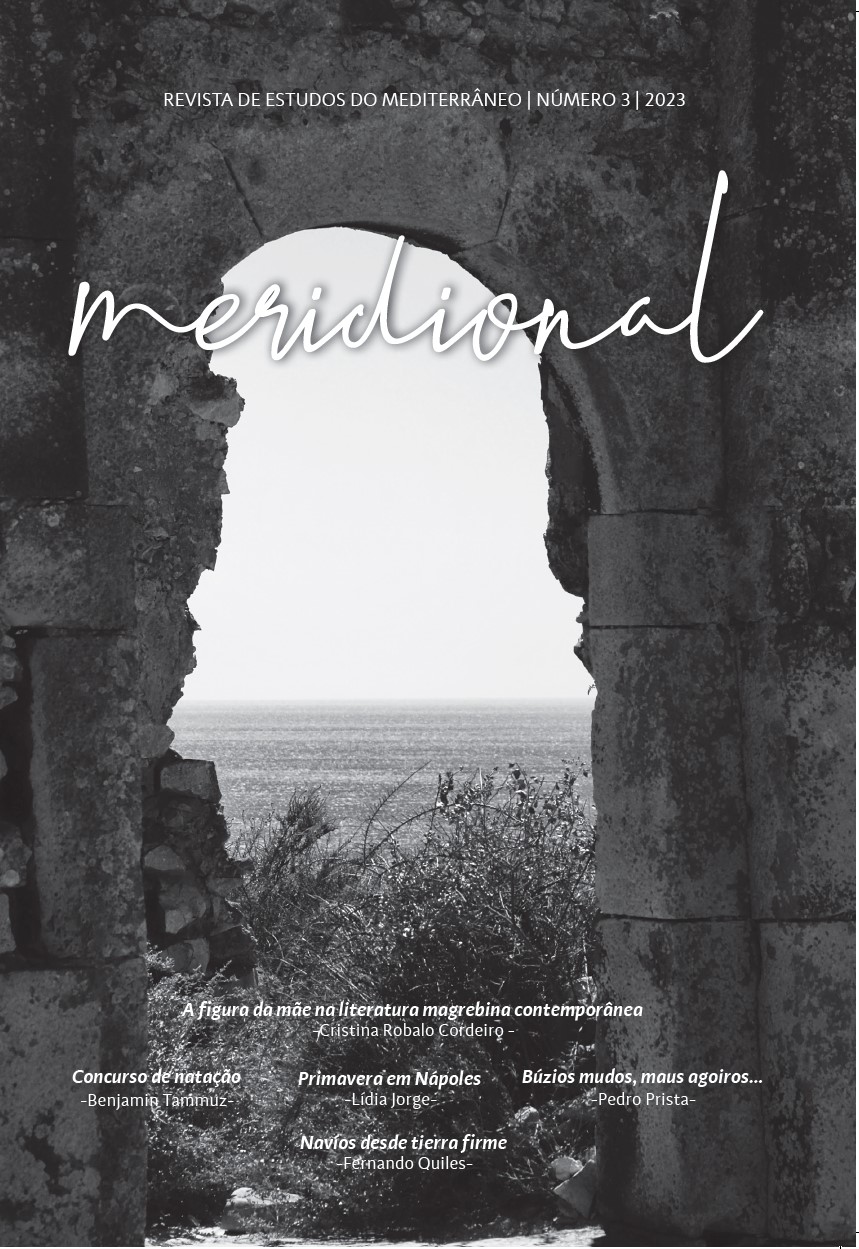Number 3 of Meridional, the Mediterranean Studies Magazine, coordinated by Maria da Graça A. Mateus Ventura, will be presented on December 9th, at 15pm, at the Café – Concerto do TEMPO – Teatro Municipal de Portimão.
The presentation, part of the Portimão City Day program, will be given by Manuel Frias Martins, retired professor from the Faculty of Arts of the University of Lisbon and president of the Portuguese Association of Literary Critics.
This edition has the collaboration of 20 authors from different geographies on both sides of the Mediterranean: Portugal, Spain, Morocco and Israel, and uses three languages – Portuguese, Castilian and French.
It adds a new one to the headings of previous issues, an unpublished short story by the Israeli writer Benjamin Tammuz, translated from Hebrew by Lucia Mucznik.
In the poetry section, António Cabrita will introduce you to the Moroccan poet Abdellatif Laâbi, a freedom fighter, imprisoned several times in Morocco, and offers some poems taken from the anthology L'arbre à poèmes.
Nuno Júdice shares the poem “In defense of the Atenagórica letter”, which he wrote in Zacatecas, in June this year, when he went to receive the Iberoamerican Ramón López Velarde 2023 prize, awarded by the Government of Zacatecas (Mexico).
Maria João Cantinho, a specialist on Walter Benjamin, dedicates the poem “Crónica berlinense” to him, evoking the German philosopher's stay in Ibiza.
Luís Castro Mendes presents two poems: “The friends who die” and “We also lose our enemies”.
In the “Travel Chronicles” section, Lídia Jorge reports on a trip to Naples, describing the «blue bay drawn on the horizon as if it contained the synthesis of the entire Mediterranean». Ana Isabel Soares tells of a getaway to Venice, Serinissima, and Maria João Cantinho tells of a trip in Morocco, crossing the High Atlas and the desert on the way to Zagora, riding a dromedary.
The thematic Dossier focuses on Mediterranean Ports, starting with a global approach to the evolution of ports by Pedro Prista entitled “Mute whelks, bad omens… An anthropological digression on ports, sea and hospitality” and then disembarking in Istanbul, guided by João Ventura who has an unprecedented encounter
with Walter Benjamin in a pasaji.
Then we head to Seville with art historian Fernando Quiles and, finally, José Gameiro takes readers on a visit to the Mediterranean Museum in Marseille.
The Studies section includes an article by Cristina Robalo Cordeiro on the figure of the mother in contemporary Maghreb literature. Next are texts by Frederico Mendes Paula and António Jorge Afonso on Alcácer Quibir, presenting two complementary approaches, the first on the renegades, the second on the relations between
Portugal and Morocco after the battle.
The Great Interview, again conducted by José Alberto Alegria, in French, brings the vision of Moroccan anthropologist Ahmet Skounti, UNESCO consultant for the Intangible Heritage of Humanity, on the issues of implementing heritage safeguard plans and the challenges posed by catastrophic effects of the September 8th earthquake in Atlas.
The magazine closes with three book reviews: one on a critical territory in the Middle East and another on the Mediterranean Sea – Lebanon, Labyrinth, by Alexandra Lucas Coelho, by Cláudia Lucas Cachéu; La Grande Mer.
“Une histoire de la Méditerranée et des Méditerranéens”, by David Abulafia, by João Guerreiro. João B. Ventura writes the review of the novel Misericórdia by Lídia Jorge, which addresses an issue that is transversal to all contemporary societies – the isolation of the elderly, the precarious situation of migrants and our fragility in the face of death.




















Comments